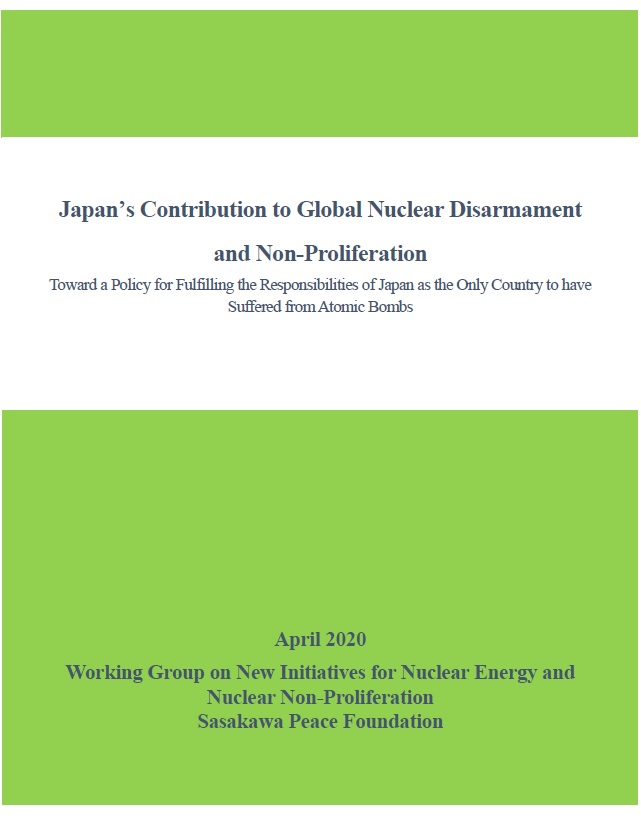Next, Professor Tatsujiro Suzuki of Nagasaki University (chairman of the working group) and Tsuneo Nishida, former Ambassador of Japan to the United Nations (secretary of the working group) explained the content of the recommendation and the current global situation regarding nuclear nonproliferation.
Professor Suzuki explained that the policy recommendation consists of two major components, the main point being that "while both the U.S. and Russia are pursuing the development of small nuclear weapons and have adopted policies that include the use of nuclear weapons, Japan should take measures to reduce nuclear risk by supporting the ‘No First Use’ and ‘Sole Purpose’ policies, which limit the use of nuclear weapons to retaliation for use of nuclear weapons by an adversary. The Japanese government has not explicitly endorsed these policies, and we have included it as a new recommendation," he said.
The policy recommendation also urges the Japanese government to join the Conference of the Parties to the Treaty on the Prohibition of Nuclear Weapons (TPNW) as an observer state until official participating conditions are met, and to make efforts to support the treaty. "Japan should fundamentally review its passive attitude and begin now to work toward signing and ratifying the treaty. We also recommend the establishment of an independent advisory council to study the impact of signing the treaty, its compatibility with the Japan-U.S. Security Treaty, and other issues. Ultimately, it is important to build a security environment that does not depend on nuclear deterrence,” Professor Suzuki pointed out.
Regarding the international situation informing these recommendations, Professor Suzuki noted that the New Strategic Arms Reduction Treaty (New START) between the U.S. and Russia, which has supported nuclear disarmament, will expire in February 2021. In addition, the number of countries that have ratified the TPNW has increased, and the prospect of ratification by the 50 countries required for the treaty to enter into force appears attainable. “The question is how Japan should face it,” he emphasized.
Ambassador Nishida then explained that "the global situation surrounding nuclear nonproliferation has stagnated. In fact, the situation is likely to regress back to nuclear proliferation. The pillar of Japan's postwar diplomacy was the country’s experience in Hiroshima and Nagasaki, and Japan should encourage the world to promote disarmament. In the global community today, a rift has developed between nuclear-weapon states, which are protected by deterrence, and non-nuclear-weapon states, which do not depend on deterrence. This situation has the potential to divide international public opinion."
(The
original Japanese article was published on June 25, 2020.)
